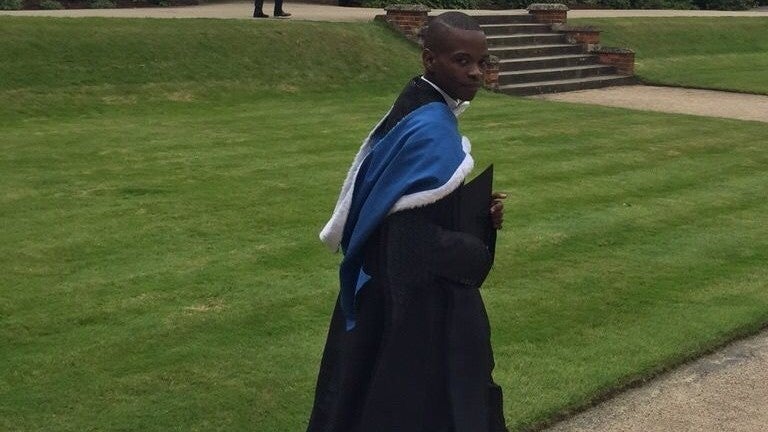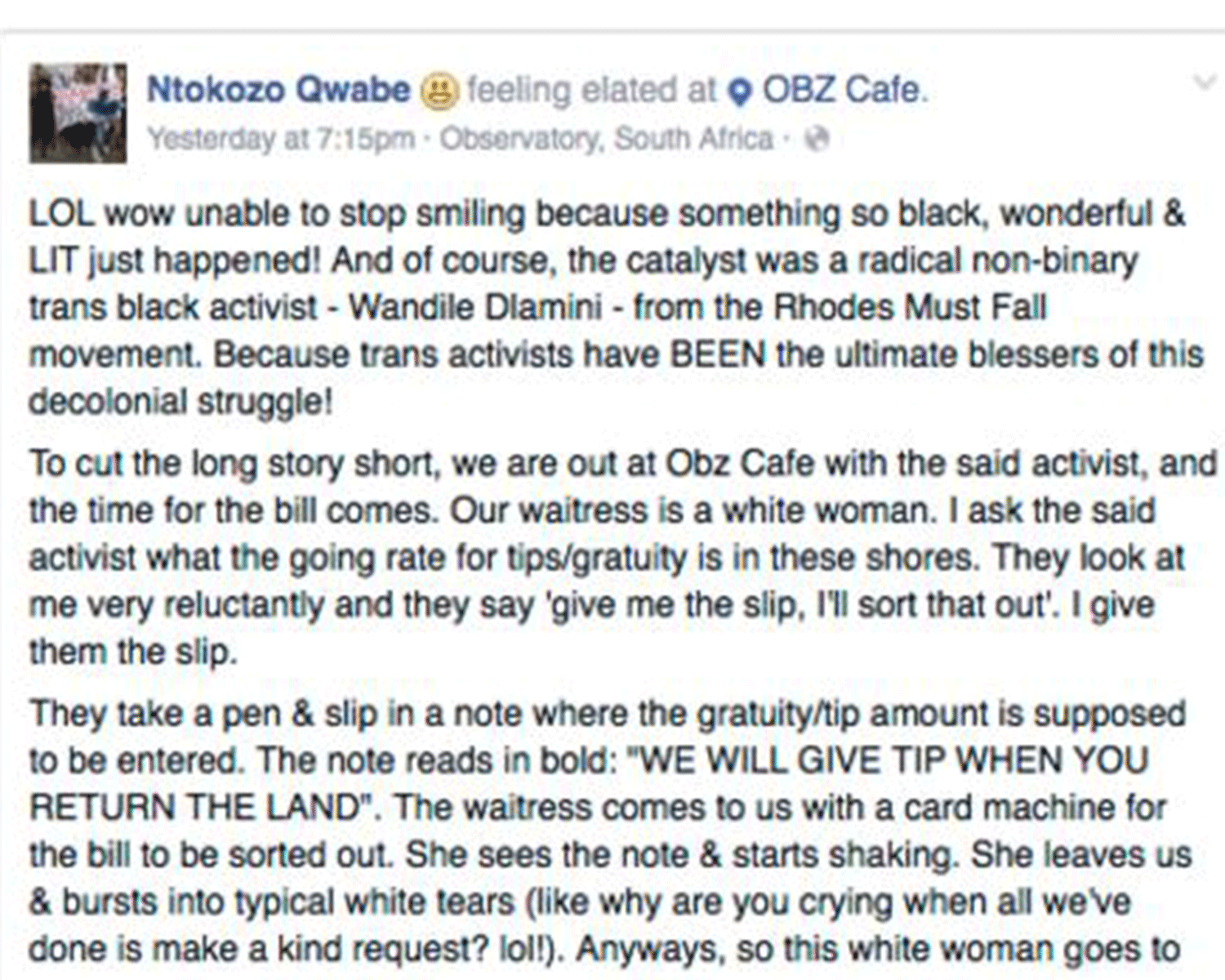The leader of Rhodes Must Fall was right to mock 'white tears' - they're just another form of racism
White people, stop crying when people of colour talk about racism – this isn’t about you


One of the leaders of the Rhodes Must Fall Campaign, Ntokozo Qwabe, has recently come to the attention of the media after he and a friend made a white waitress, Ashleigh Schultz, cry in a South African restaurant. Qwabe and his friend refused to give the waitress a tip and instead wrote on the bill that she could have one “when you return the land”. This act reduced the waitress to what Qwabe later referred to as “typical white tears”.

Whilst revelling in the upset of Schultz may have been wrong, Qwabe raises a legitimate point about ‘white tears’ and racism. One of the stumbling blocks in getting mainstream society to address racism is the brick wall response received when these issues are raised. Our concerns tend to be either dismissed as something from the past we need to ‘move on’ from; or people are so racked with ‘white guilt’ that all meaningful conversation is stilted.
I have lost count of the number of times when confronted with the realities of racism, white colleagues have become overwhelmed, emotional and sometimes cried. When this happens it completely shuts down the debate and shifts the focus from the issue of racism, to the guilt and anguish expressed by the ‘white tears’. There could be no more inappropriate focus for a discussion of racism. Yes, there is a lot to feel guilty for, both historically and currently, but tears do not solve any of the continuing problems. In fact, ‘white tears’ are a form of racial oppression themselves, a mechanism to attempt to share the pain of racism rather than accepting responsibility and addressing this oppression.
To accuse Qwabe of racism is absurd. We entirely conflate racism and prejudice in discussions today. Even if Qwabe, or others, are prejudiced against white people, racism is a system of oppression. Racism systematically organises society in ways that structurally disadvantage communities of colour. Individual prejudice against any white person can never be equated to this systemic oppression.
Qwabe may have been wrong to delight in the tears of Schultz, but his frustration is understandable. Until we can have a conversation about racism, in the absence of white guilt and tears, there will be no progress towards racial equality.
In his autobiography, Malcolm X famously regretted telling a white student that she had no role in combatting racial oppression. On reflection he argued that the place where “really sincere white people have got to do their ‘proving’ of themselves is not among the black victims, but out on the battle lines of where America's racism really is - and that's in their own home communities”.
‘White tears’ take us further away from doing the important work of confronting the legacy of racism. Racism should be an uncomfortable discussion for white people, but it needs to be addressed openly and move beyond the self-obsession of guilt.
Join our commenting forum
Join thought-provoking conversations, follow other Independent readers and see their replies
Comments
Bookmark popover
Removed from bookmarks